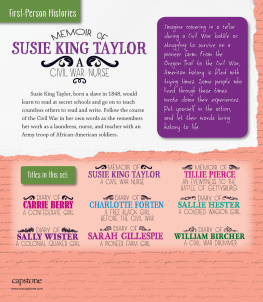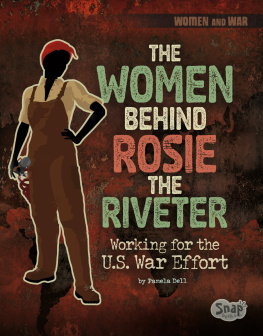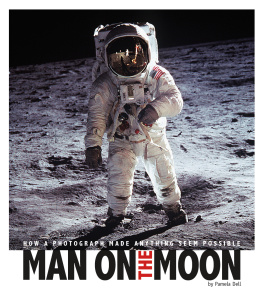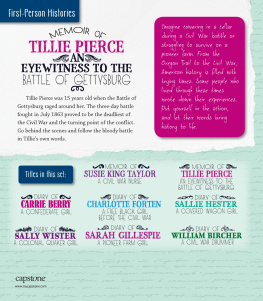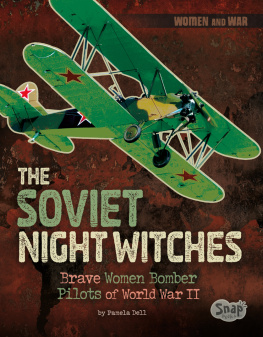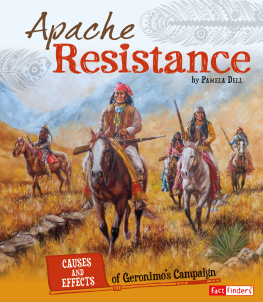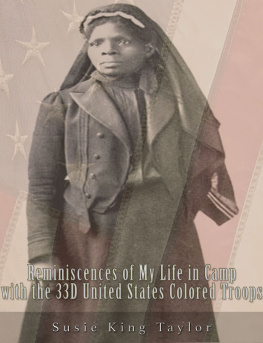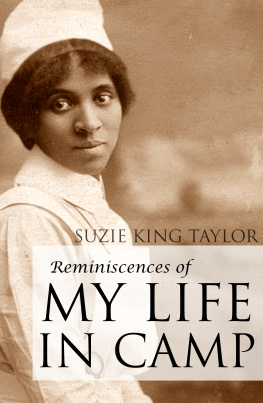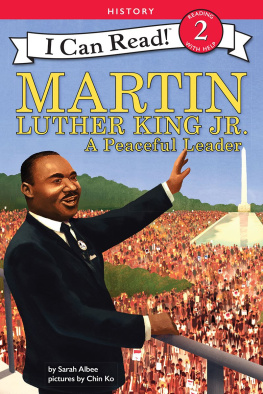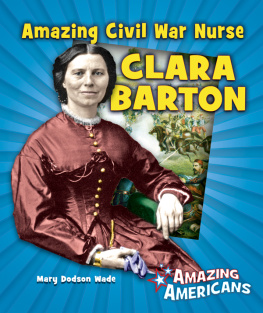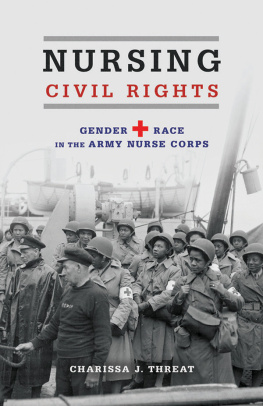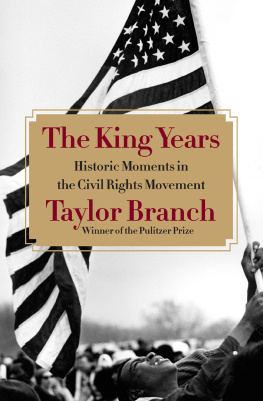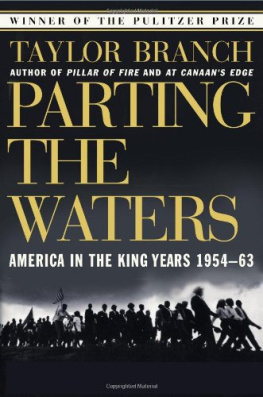A Young Black Nurse in a Military Camp
Susie Baker was born a slave on August 6, 1848, the eldest of nine children. Her family was enslaved on Georgias Isle of Wight, one of the Sea Islands that lie along the coast of South Carolina and Georgia. The islands slaves worked on plantations and had little hope of ever gaining their freedom. That changed when the Civil War started in 1861.
The Sea Islands were home to some of the largest and wealthiest cotton plantations in the South. The black enslaved population on the islands outnumbered the whites 83 percent to 17 percent.
The southern states had declared themselves a new nation called the Confederate States of America. They were fighting against the northern states, called the Union. The South did not want the federal government interfering in its individual states decisions. This especially applied to the widespread practice of slavery. The northern states had long ago outlawed slavery and did not want it to spread.
But even before the war began, Susie had more good fortune than most. At 7 she was sent to Susie wrote later, with our books wrapped in paper to prevent the police or white persons from seeing them. It was against the law for enslaved people to learn to read or write.
Susie King Taylor
Less than a year after the Abraham Lincoln and other northerners saw the value of creating more black regiments.
Susie, just 14 when the regiment formed, became its Edward King. As a young wife, Susie King lived and traveled with the regiment as it moved from camp to camp. Because she was educated, she also taught the soldiers and served as a battlefield nurse.
In 1902 Susie published her memories of that historic time in her youth. Reminiscences of My Life in Camp with the 33d United States Colored Troops Late 1st S.C. Volunteers details Susies exceptional experience. Few women, black or white, left such a detailed and interesting account of what it was like to live in a Civil War camp. For Susie it was a view of the fight for freedom seen up close.
The Memoir of Susie King Taylor
(18621866)
April 1, 1862
[A]bout the time the Union soldiers were firing on Fort Pulaski, I was sent out into the country to my mother. I remember what a roar and din the guns made. They jarred the earth for miles. The fort was at last taken by them [Union soldiers].
Fort Pulaski suffered battle scars during the long Union forces.
Fort Pulaski sat on Georgias Cockspur Island close to the mouth of the Savannah River. Having control of the fort was important to Union troops. From there they could prevent Confederate ships from entering or leaving Savannah, an important port city. The Union siege of the fort lasted 112 days and ended with a victorious battle on April 10 and 11.
April 13, 1862
[M]y uncle took his family of seven and myself to St. Catherine Island. We landed under the protection of the Union fleet.
Wherever possible, Susies recollections of her Civil War experiences appear word for word as they were written. Because she wrote her book many years after the Civil War ended, the exact dates of some of her recollections may be slightly incorrect. Many have approximate dates or no dates at all. Because Susies memoir appears in its original form, you may find a few uncommon expressions. To make the meanings of these words more clear, explanations within a set of brackets follow. Also, in some places, words have been removed from the memoir entries. In these cases, you will notice three dots in a row, called ellipses. They show that words or sentences are missing from the text.
Around April 27, 1862
[A]bout thirty of us were taken aboard the gunboat P_____, to be transferred to St. Simons Island; and at last, to my unbounded joy, I saw the Yankee.
St. Catherines Island and St. Simons Island, about 50 miles (80 kilometers) south of Savannah, are two of the Sea Islands that lie along the coast of Georgia and South Carolina.
Yankees
During the Civil War, southerners referred to people from the North as Yankees. Beginning in World War I and continuing today, people from other parts of the world call all Americans Yankees or Yanks. The term may have first been used by a British general during the Revolutionary War.
In her memoir, Susie wrote about Yankees: I had been reading so much about the Yankees I was very anxious to see them. The whites would tell their colored people not to go to the Yankees, for they would harness them to carts and make them pull the carts around, in place of horses. I asked grandmother, one day, if this was true. She replied, Certainly not! that the white people did not want slaves to go over to the Yankees, and told them these things to frighten them.
Next morning we arrived at St. Simons. After I had been on St. Simons about three days, Commodore Goldsborough heard of me, and came to Gaston Bluff to see me. [He] wished me to take charge of a school for the children on the island. I told him I would gladly do so I had about forty children to teach, beside[s] a number of adults who came to me nights, all of them so eager to learn to read, to read above anything else.
The Commodore McDonough gunboat helped enforce a in South Carolina waters.
Commodore Louis M. Goldsborough was a Union naval commander. He was one of the officers in charge of blockading the coast so supplies could not get to the South.
Early summer 1862
About the first of June we were told that there was going to be a settlement of the war. Those who were on the Union side would remain free, and those in bondage were to work three days for their masters and three for themselves. It was a gloomy time for us all, and we were to be sent to Liberia. Chaplain French asked me would I rather go back to Savannah or go to Liberia. I told him the latter place by all means. We did not know when this would be, but we were prepared in case this settlement should be reached. However, the Confederates would not agree to the arrangement, or else it was one of the many rumors flying about at the time, as we heard nothing further of the matter.

